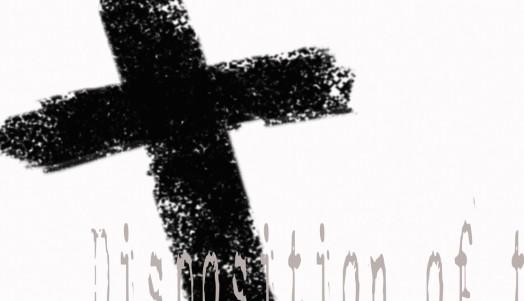
2 minute read
In the Beginning: The Book of John
(John 1:19-27[HCSB])
19 This is John’s testimony when the Jews from Jerusalem sent priests and Levites to ask him, “Who are you? ”
Advertisement
20 He did not refuse to answer, but he declared: “I am not the Messiah.”
21 “What then? ” they asked him.
“Are you Elijah? ”
“I am not,” he said.
“Are you the Prophet? ”
“No,” he answered.
22 “Who are you, then? ” they asked. “We need to give an answer to those who sent us. What can you tell us about yourself? ”
23 He said, “I am a voice of one crying out in the wilderness: Make straight the way of the Lord just as Isaiah the prophet said.”
24 Now they had been sent from the Pharisees. 25 So they asked him, “Why then do you baptize if you aren’t the Messiah, or Elijah, or the Prophet? ”
26 “I baptize with water,” John answered them. “Someone stands among you, but you don’t know Him. 27 He is the One coming after me, whose sandal strap I’m not worthy to untie.”
Note: use of Tyndale NLT Life Application Study Bible notes
I am not the Messiah
John sets the tone for all that is to come: he doesn’t begin with genealogies, or with the annunciation of the virgin birth: He focuses on the timelessness of Jesus as Logos and then allows John the Baptist to establish that he is not a resurrected prophet or a god, but a humble servant of the Messiah whose arrival was imminent. He further redirects the attention of the Pharisees by using the cultural trick of “heralding” which was a Roman custom. The ploy, it was hoped, would sow the seeds of curiosity by creating an atmosphere of anticipation.
But understand, John was coming out of the wilderness an ascetic, looking like a crazy man, wearing camel hair clothing, and was thought to be the resurrection of Elijah, the prophet Isaiah, or even the Messiah Himself; and he was baptizing Jews, not Gentiles, as was the Hebrew tradition. One wonders if Jesus, being heralded by such an unusual individual, would be taken any more seriously. What do you think the Pharisees and the people really expected?
Luke tells us from the recollections of eyewitnesses that John the Baptist came eating locusts and honey appearing wild-eyed, while Jesus came eating and drinking with sinners … the implication was that Jesus drank excessively with the wrong people. Both were thought to be “off the hook” in the eyes of the Orthodox Jews of the day.
In this way it is John who uses Mark’s narrative, the recollections of Peter. Both writers extract Scripture from Isaiah 40:3 to herald the coming Christ which is completed in 40:1-11. But John the Baptist goes much further than heralding Christ; he deifies Him! He even declares himself unworthy “to untie Jesus’ sandal strap.”
The Pharisees missed the point altogether, however. They wanted to know who John was, while John was desperately attempting to gather ears and hearts for Jesus.
John is not setting the stage for himself, but the entrance of the Messiah, who will be both servant to the cross and Master of it.




